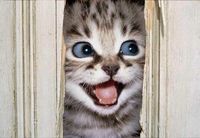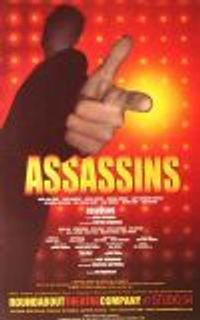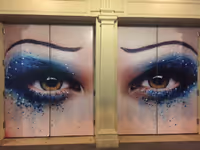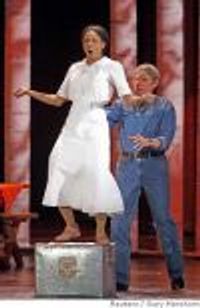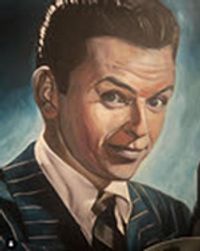Questions about HAMILTON
puukuna
Swing Joined: 11/20/15
#1Questions about HAMILTON
Posted: 2/11/16 at 10:09pm
I've only listened to the cast recording and watched a couple of show clips so I have a couple of questions:
1) Why is Phillip Hamilton played by a grown man even though he is said to be 9 years old at one point of the show?
2) At which point in the show (maybe which song?) do we understand that the whole musical was told from Eliza's POV?
3) How is Hamilton's death portrayed in the live show?
Thank you (:
#2Questions about HAMILTON
Posted: 2/11/16 at 10:17pm
puukuna said: "I've only listened to the cast recording and watched a couple of show clips so I have a couple of questions:
1) Why is Phillip Hamilton played by a grown man even though he is said to be 9 years old at one point of the show?
Haven't you noticed no one is played by anyone close to the real person? Besides, Phillip is only 9 for a scene, he's older the rest of the time
2) At which point in the show (maybe which song?) do we understand that the whole musical was told from Eliza's POV?
How is it her POV? Only the ending was. Why do you think that?
3) How is Hamilton's death portrayed in the live show?
He gets shot, they use the turntables to simulate him being rowed to help. Before that, the scene is frozen and he goes into a monologue about life and death.
Thank you (:
"
hannhannham
Chorus Member Joined: 2/5/16
#3Questions about HAMILTON
Posted: 2/11/16 at 10:40pm
This should maybe be in the main Ham thread, but anyway.
Obviously SPOILERS for those who don't want to know about staging.
1. He's 9 for about 2 minutes on stage. It's a funny moment for the audience, but other than that you don't really care/realize.
2. I don't think whole show is from Eliza's perspective. Not sure where you got that, care to elaborate? If anything, it's from Burr's POV, but songs switch between characters. For example, if it was from Eliza's POV, Satisfied wouldn't exist as a song. The realization is in the last song, that she is the one who kept his memory alive, despite how much he hurt her, and without her who knows how much we would actually know about Hamilton today. That doesn't make the whole musical from her POV. (unless I missed something and I'm totally wrong, then someone please enlighten me)
3. When the gun goes off, the turn tables are spinning, and one of the female ensemble members is holding the bullet from Burr's gun and aiming it slowly towards Hamilton while he does his monologue. He moves around in this scene, some ensemble/principal members come onstage for different parts (i.e. "Washington is watching from the other side," Chris Jackson appears), but right before he's shot (he aims his pistol at the sky, WAIT!), he's back in position aiming at the sky. He hunches over, two ensemble members mime rowing him across the river via the turn tables. He is back on stage during "Who Lives Who Dies" as a kind of ghost/spirit watching Eliza.
#4Questions about HAMILTON
Posted: 2/12/16 at 12:29am
Also, Philip's story parallels Laurens's, so there's meaning behind them being played by the same actor.
puukuna
Swing Joined: 11/20/15
#5Questions about HAMILTON
Posted: 2/12/16 at 12:30am
My apologies I actually only read somewhere online that someone said it was from Eliza's POV, but there wasn't any way I could confirm this. But thank you for the info!
#6Questions about HAMILTON
Posted: 2/12/16 at 12:51am
The finale is the only part of the show that is from her point of view. She got "what you always wanted - more time," and explains what she did in the 50 years after Hamilton's death.
#7Questions about HAMILTON
Posted: 2/12/16 at 11:49am
Something I learned bc I didn't understand the meaning was when Burr mentioned Hamilton wearing his glasses to the duel is that if a person who doesn't wear glasses all the time wears them to a duel it's considered cheating.
#8Questions about HAMILTON
Posted: 2/12/16 at 11:51am
lol how would that be cheating...he wore his glasses so he could see better.
#9Questions about HAMILTON
Posted: 2/12/16 at 12:02pm
gypsy101 said: "lol how would that be cheating...he wore his glasses so he could see better.
"
That's exactly why it's cheating. I'll have to find the link. The rules were that unless you were known to wear glasses regularly you can't wear them to the duel. So if you used them for reading or here and there they weren't allowed. So it's possible Burr thought he was cheating and there to kill him. I found it in some old rules for a duel because I wondered what that line meant
#10Questions about HAMILTON
Posted: 2/12/16 at 12:06pm
http://www.geriwalton.com/index.php/2014/08/pistol-dueling-its-etiquette-and-rules/
it is #9 on the list
#11Questions about HAMILTON
Posted: 2/12/16 at 12:15pm
He wears glasses many times during the show though is how i don't see it as cheating.
#12Questions about HAMILTON
Posted: 2/12/16 at 12:17pm
Yeah, I'm not sure about if he wore them regularly or not but it was something interesting I learned about the rules
#13Questions about HAMILTON
Posted: 2/12/16 at 12:35pm
The point of Burr saying that Hamilton was wearing his glasses was to convey his belief that Hamilton came to the duel with the intention of murder. If he wasn't wearing his glasses, then it might have suggested his mentality was a ceremonial duel where no one was to be injured. The fact that he wore his glasses indicated, to Burr, that Hamilton had mortal intentions—to see clearly, aim clearly, and fire clearly (to take deadly aim). It's not cheating or anything—it's just demonstrative of what Hamilton was arguably intending to do.
Updated On: 2/12/16 at 12:35 PM#14Questions about HAMILTON
Posted: 2/12/16 at 12:42pm
BroadwayConcierge said: "The point of Burr saying that Hamilton was wearing his glasses was to convey his belief that Hamilton came to the duel with the intention of murder. If he wasn't wearing his glasses, then it might have suggested his mentality was a ceremonial duel where no one was to be injured. The fact that he wore his glasses indicated, to Burr, that Hamilton had mortal intentions—to see clearly, aim clearly, and fire clearly ("to take deadly aim"![]() . It's not cheating or anything—it's just demonstrative of what Hamilton was arguably intending to do.
. It's not cheating or anything—it's just demonstrative of what Hamilton was arguably intending to do.
"
Exactly, so that's why I looked it up bc if Hamilton regularly wore glasses, one wouldn't be surprised when he was wearing them. Anyway, irrelevant of the show, if you're ever in a duel don't wear your reading glasses! :)
PastramiOnRye
Swing Joined: 1/27/16
#15Questions about HAMILTON
Posted: 2/17/16 at 3:48am
I don't remember Chernow's book mentioning the glasses. However the book most definitely does mention multiple times that Burr was widely thought to have practiced his shooting extensively before the duel, considered foul play in dueling etiquette. In the musical Burr is portrayed much more sympathetically than in the book. Fair enough -- it makes the musical a lot more interesting. The book paints a much more contemptible and weaselly picture of him throughout his whole life. Chernow seems extremely un-fond of Burr and barely hides his distaste for him. I've been meaning to read other historical takes on Burr to see if Chernow's portrayal of him is considered the norm. I'm sure that LMM pulled from multiple source so I'd be curious to see what the "pro" Burr sources (if any) have to say. That said, even the most objective facts about Burr leave a serious distaste in one's mouth. The only thing one can safely say is that Hamilton in his dying days after the duel (he survived for a few days or even a week I think?) adamantly did not blame or curse Burr. He accepted his own responsibility for the outcome.
lunch
Understudy Joined: 7/13/15
#16Questions about HAMILTON
Posted: 2/17/16 at 8:02am
1) Why is Phillip Hamilton played by a grown man even though he is said to be 9 years old at one point of the show?
It's not unheard of in theater to have an adult playing a child. The mannerisms and language fit a child, so it works in this case, and provides continuity to the adult Phillip character.
2) At which point in the show (maybe which song?) do we understand that the whole musical was told from Eliza's POV?
The entire show is NOT told from Eliza's POV.
3) How is Hamilton's death portrayed in the live show?
He dies in a duel with Aaron Burr. The duel is depicted.
lunch
Understudy Joined: 7/13/15
#17Questions about HAMILTON
Posted: 2/17/16 at 8:04am
Hellob said: "Something I learned bc I didn't understand the meaning was when Burr mentioned Hamilton wearing his glasses to the duel is that if a person who doesn't wear glasses all the time wears them to a duel it's considered cheating.
----------
It's not that it's considered cheating. But in this case, Burr interpreted the fact that Hamilton wore his classes as an indication that he was intent on carefully aiming during the duel, rather than "throwing away his shot" by aiming into the ground or the sky.
"
Updated On: 2/17/16 at 08:04 AM
vdirects
Stand-by Joined: 2/13/16
#18Questions about HAMILTON
Posted: 2/17/16 at 10:27am
I wish you would have said "SPOILER ALERT" for this question. I didn't know about the Eliza POV thing. Is that even a spoiler? IDK, but the vauge "Questions about HAMILTON" ends up being a bait and a trap for people who like to discuss Hamilton but don't want spoilers.
Updated On: 2/17/16 at 10:27 AM
rebeccmam31
Featured Actor Joined: 10/21/15
#19Questions about HAMILTON
Posted: 2/17/16 at 10:28am
vdirects said: "I wish you would have said "SPOILER ALERT" for this question. I didn't know about the Eliza POV thing. Is that even a spoiler? IDK."
It's not even correct, so no. It's not a spoiler.
vdirects
Stand-by Joined: 2/13/16
#21Questions about HAMILTON
Posted: 2/17/16 at 5:56pm
Agreed I wish the word SPOILER was in the title.
As for the Eliza POV thing, obviously it's not in her POV but if you've never seen the show and liked listening to the songs "Burn" or finale "who lives who dies who tells your story", then you hear Eliza saying that she's erasing herself from the narrative (Burn) or she's putting herself back to the narrative (finale). Just my guess as to why the original poster may have asked that question.
#22Questions about HAMILTON
Posted: 2/17/16 at 6:01pm
Not trying to throw shade, but I feel that the word spoiler was assumed after the OP asked the questions. If one didn't want to know the answers to the questions, they should have stopped reading after the questions were asked.
mufish
Featured Actor Joined: 5/2/09
#23Questions about HAMILTON
Posted: 2/17/16 at 7:54pm
I agree with Pastrami's assessment of Chernow's book. I just finished it recently and thought the same thing about his take on Burr. To add to the discussion of the duel, one of the really interesting things was that Hamilton won the right to choose which side of the ground he stood on. He chose the one that had him facing directly into the rising sun, which actually put him at a disadvantage. Burr had the better angle. Additionally, Hamilton's gun had a setting that allowed him to basically give his gun a hair trigger, which would've given him an advantage (Burr had the same gun but they were Hamilton's, so he was unaware of this). However, he didn't use it, making fairly clear that even if he was wearing glasses that day he wasn't doing it to "cheat" in the duel.
The ironic thing is that Hamilton did plan on literally throwing away his shot. His second was aware, but Chernow makes the argument that Burr didn't know. It's actually a pretty fascinating topic - they both got a shot off, but the question is whether Hamilton shot first and intentionally missed, or if his shot was a reflective response to getting hit by Burr's shot.
#24Questions about HAMILTON
Posted: 2/17/16 at 10:39pm
Apropos of nothing else in this thread, I was pleased that I enjoyed the score when I first heard it without interruption on Sirius Broadway. I thought that I might be too old and settled to appreciate a new (to me) form of music that was so popular with so many.
This was not the monotonic gangster rap that I had been appalled to find was about the only "music" that my nephew grew up on. This was tuneful and rhythmic.
Without having seen the show yet, I was pretty surprised that this show was a massive hit. I'm about three quarters through the Chernow 37 hour audiobook. The author spends about an hour on each major episode of Hamilton's public life: federal assumption of state debt, establishment of a national bank, the excise tax on whiskey, etc. Hamilton, the musical, breezes through these in a few minutes. It's a credit to the writers' ability that they can give the audience a sufficient if necessarily shallow understanding of the issues, but don't let your mind wander for fifteen or twenty seconds or you may miss about three years of Hamilton's life.
Hamilton's encounters with Burr over the course of his life are given a heavy emphasis, no doubt to set up the climax of the biography, musical, and life of Hamilton.
Now I just have to dig up a ticket.
PastramiOnRye
Swing Joined: 1/27/16
#25Questions about HAMILTON
Posted: 2/18/16 at 4:02am
mufish said: "The ironic thing is that Hamilton did plan on literally throwing away his shot. His second was aware, but Chernow makes the argument that Burr didn't know. It's actually a pretty fascinating topic - they both got a shot off, but the question is whether Hamilton shot first and intentionally missed, or if his shot was a reflective response to getting hit by Burr's shot."
Totally fascinating topic! Book "spoilers" ahead, if you can call discussion about 200+ year old history a spoiler...
Whether or not Burr knew or could have surmised Hamilton's intentions, Chernow makes a pretty strong case that Burr had an intent to kill either way. Burr invoked the challenge. Burr was in a miserable state of lost pride and weakness due to his political status and was looking to take it out on someone. Hamilton, on the other hand, was (to me) frustratingly intransigent and easily could have diffused the whole situation with his brilliant pen and a face-saving statement. The dispute leading to the duel was ridiculously childish. At least the Charles Lee / Laurens duel was about something more substantial! Hamilton had it in his power to avoid the duel. The book explains Hamilton's dark obsession with duels throughout his whole life and even addresses the topic of whether Hamilton may have had a conscious or subconscious death wish going in to the Burr duel. Hamilton took the duel seriously and went into it knowing that Burr might cause him injury or death. Whatever the case it is a very, very tragic story, especially when coupled with the story of Philip. Sigh. But that's why the book and the musical are so good. :)
Note: all I know about the duel I learned from the one book, so I'm not at all claiming to be an expert in it. (As with most Americans, I always knew about the duel but never any of its details.) I'd love to read a few other books about it to see how they stack up against Chernow's take.
Videos



